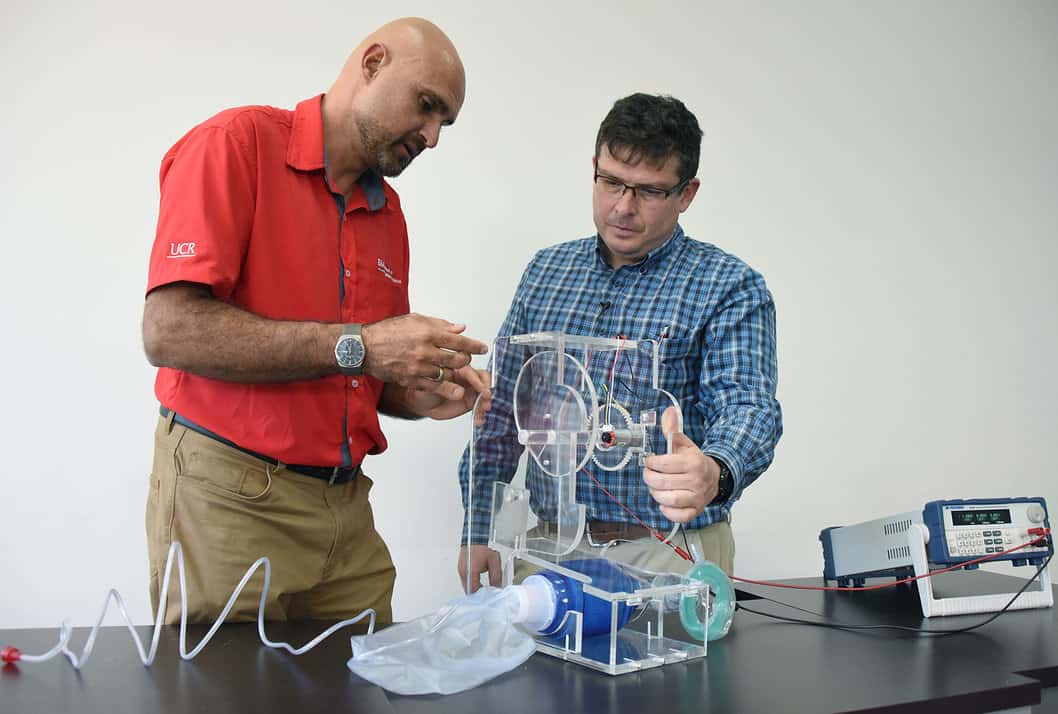Separate projects at the University of Costa Rica (UCR) and the Costa Rica Institute of Technology (TEC) could help the country be better prepared for an increase in coronavirus cases.
Both universities are creating emergency ventilators that could be used by health professionals to treat patients in respiratory distress due to COVID-19.
At UCR, a group of professionals built “Respira UCR,” a prototype designed using blueprints from the OxyGEN project in Spain. With a cost of 80,000 colones (about $140), the UCR model can be manufactured quickly and distributed to clinics across Costa Rica.
“If cases continue to rise in the country, not all patients can go directly to a hospital,” said Ralph Garcia Vindas, director of the School of Physics at UCR, in a press release. “They will first have to be treated at an EBAIS (public community health clinic), where their health condition will be assessed.
“This then solves the need to provide respiratory support to sick people as they move to a hospital, where they were placed on a full ventilator.”
UCR emphasized that their device does not replace a commercial ventilator, but it could provide temporary emergency support for patients who are having difficulty breathing before they reach a hospital.
Meanwhile, a research team at TEC is creating two low-cost prototypes, including an original design of a mechanical ventilator constructed via 3D printing.
The second design is based on an existing model that is already used commercially overseas.
TEC said it is coordinating efforts with the Costa Rican Social Security System (CCSS, or Caja), and is prepared to manufacture more ventilators to distribute nationwide.
“We know that for this equipment to be produced for use in hospitals, we must follow several protocols; however, we cannot wait until we have all the protocols to start the design and implementation,” said engineer Adrián Quesada, professor at the School of Materials Science and Engineering and part of the TEC research group.
“It is better to have a prototype already tested and waiting for protocols to shorten the production time in case of an emergency.”
Costa Rica’s public health system hopes to have 700 professional ventilators available, though many will not arrive for more than a month, according to Román Macaya, CCSS president. The country is also repurposing the National Rehabilitation Center (CENARE) as a hospital dedicated to COVID-19 patients.
Costa Rica has confirmed 201 cases of the novel coronavirus. Two patients, both elderly adults, have died after contracting COVID-19.






